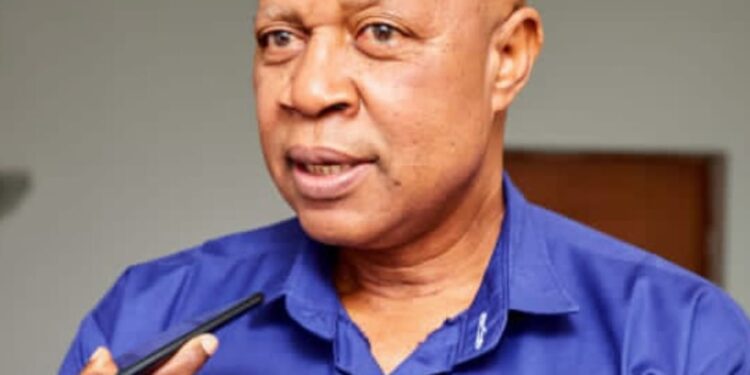BY ABAH ADAH
A veteran in Nigeria’s solid minerals and steel industry, Dr Emeka Okengwu, has stated that the planned revival of the Ajaokuta Steel Company Limited (ASCL) in Kogi State by the federal government has been dragging for too long because result-oriented approach has not been deployed.
Dr Okengwu who was speaking during an exclusive interview with The Rock Post News in Abuja, said holistic attempt at reviving and operationalising the Ajaokuta Steel Complex has been the bane of progress.
He maintained that the best approach to bringing the plant to life is to decouple it, adding that fixing and operationalising each of the basic units of the complex to produce according to design would be a lot easier.
“You must understand that Ajaokuta is not just a steel plant; It is a basic industries facility. Meaning it is inclusive of a steel plant, so the first thing you need to do is to decouple Ajaokuta.
“Ajaokuta has three major segments, one, what you call the base plant or the engineering plant; two, the furnace, and three, the section where you can produce something equivalent to three cement industries; it has that capacity.
“You must decouple into those basic components, and then go with the three things you may want to do in Ajaokuta. For instance, you can use the base workshop of engineering to begin to retrofit your transformers which has the capacity and capability to do, and begin to produce spare parts for the industrial sector; it is already 100 percent completed, ready to go to work.
“The second one is to look at the other component, which is the production of hydrated lime. But for this to happen, the lime exploration license that was attached to Ajaokuta that is no longer there should be returned to Ajaokuta, and that is for limestone. All the limestones that were originally allocated to Ajaokuta had been given out to private individuals. If Ajaokuta does not have access to those lime deposits it cannot produce cement.
“With these working – your engineering workshop helping you with your transformers, your lime plant helping to produce hydrated lime, you can probably have a cement industry. But if you want to get Ajaokuta to work as a single entity, it is near impossible.
Dr Okengwu however admitted that concession of the steel mill and the recently announced move to allocate a section of the complex for the manufacture of military hardwares are right steps in the right direction, but warned against any attempt to balkanise the gigantic project that is made up of 33 component units capable of functioning discretely.
Talking about the aspect that has to do with steel production, Okengwu said raw materials, power, and logistics still pose serious challenges.
“Even if you are importing billets to smelt those billets into steel and allied products, you need intensive power. Yes, you may say Ajaokuta has a power substation, but it has to be fed with gas; the Geregu Power Plant around it has to be fed with gas, so you have to dedicate a gas line.
“Good enough, the Ajaokuta area has one of the biggest deposits of the non-isolated gas in Nigeria. There is a lot of gas around that Ajaokuta. In fact, one of the wells has already been built and capped. All that is needed is the will to tap into that,” he noted.
In what appeared to be a shocking revelation, Okengwu said iron ore in Itakpe being canvassed as the major source of the material for steel production in Ajaokuta cannot be used as it is now due to its low grade.
He said, “A lot of people do not know that the iron ore in Itakpe cannot be used because of its low grade. The iron ore there is of very low grade; I think now it is about 35%, and so they have to upgrade it to 64%, and so far they have built two or three lines, which cannot even carry it up to the 64%, and I think they are now building a fourth line to take it to 64%. So it was not well thought through. The technology in Ajaokuta cannot carry the iron ore in Itakpe as it were now to produce steel.
“And it’s not only iron ore that you need to produce steel; you need gypsym, silica, limestone, coal, ferro-manganese, etc., so it’s not enough to have iron ore and you just go and put it inside the furnace expecting it to comes out as billets, no.
“But, fortunately, we have everything around us, even coking coal. Even though, out there they said our coal is not the coking type, that’s not true.
“Any coal that has more than 6000 kilocalories (kcal) value is coking coal grade; the one in Owukpa is over 6000, the one in Lafia Obi is about 7000, the one in Enugu is between 5000 to 6000. So it’s all about beneficiation, and with all the technology now really a lot of these things have become much easier.”



